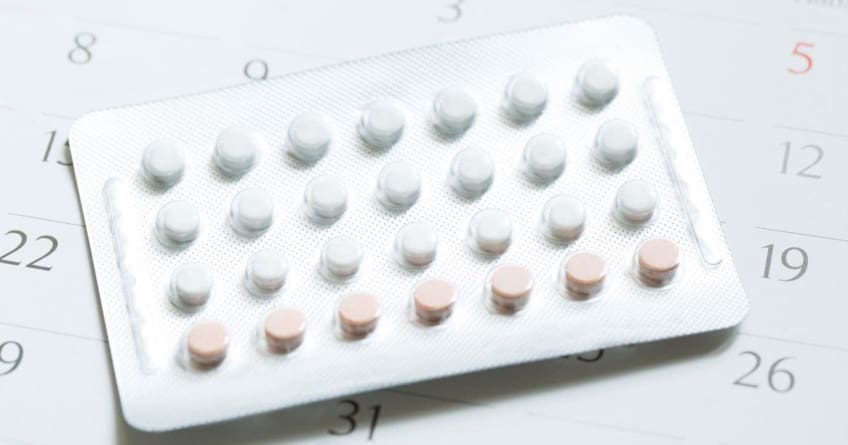
A progestin-only birth control pill is often called the mini pill. Regular birth control pills have 2 female hormones: estrogen and progestin (a synthetic version of the naturally occurring hormone progesterone). The mini pill has only progestin in it. Because this pill doesn’t contain estrogen, it may have fewer side effects than regular birth control pills.
Path to improved health
This pill works in three different ways. First, it thickens the mucus between your uterus (where a baby grows) and your vagina, the tube leading to the uterus. Sperm have a hard time getting through the thick mucus to reach the egg.
Second, like regular birth control pills, the progestin-only pill makes your body think you’re pregnant and stops your ovary from releasing an egg. This doesn’t happen as often as with combination birth control pills. Forty percent of women taking the progestin-only pill will continue to ovulate.
Third, the mini pill causes changes in your uterus that make it less likely to let a pregnancy get started, even if an egg is released.
Is the progestin-only pill better than regular birth control pills?
The progestin-only pill is safer for women who are older than 35 and smoke, have high blood pressure, or have a history of blood clots or migraine headaches.
Regular birth control pills make some women feel sick to their stomach. They also can cause severe headaches due to the estrogen in them. The progestin-only pill might not cause this problem.
This pill is better than regular birth control pills if you’re breastfeeding. That’s because the mini pill will not change your milk production. Estrogen in a regular birth control pill may reduce the amount of breast milk your body produces.
Things to consider
Remember both kinds of birth control pills are better at preventing pregnancy than condoms alone. However, no contraceptive method is perfect, even when used correctly. With typical use, as many as 9 out of 100 women who use the mini pill will get pregnant during the first year. With perfect use as directed, the pregnancy rate is less than 1 in 100 people per year. The risk of pregnancy is almost the same as the risk with regular birth control pills.
It’s very important that you take your progestin-only pills at the exact same time every day. If you don’t take them at the same time each day, your risk of pregnancy increases.
Make sure your doctor knows all medicines and dietary supplements you’re taking. Some of them, including St. John’s Wort and certain antibiotics, can interfere with birth control pills.
Does the progestin-only pill have disadvantages?
The mini pill must be taken on time. It works best if you take it every day at the same time of day. Timing is much more important for the progestin-only pill than for regular birth control pills.
If you are more than 3 hours late taking the progestin-only pill, you should take your missed dose right away and use a backup method of contraception (such as a condom) for the next 2 days.
You might have bleeding between your periods for several months after you start taking the progestin-only pill. This can be inconvenient, but it’s not a health risk. The bleeding may go away on its own after you use the mini pill for a few months. If the bleeding seems heavy or if it bothers you, discuss it with your doctor.
Like regular birth control pills, the progestin-only pill must be taken for a week before it can protect you from pregnancy. So for the first week, you need to use another kind of contraception, such as condoms, along with the mini-pill.
If you miss a day completely, you must use a second method of birth control for one week. You can’t take two mini pills the next day to make up for a missed pill.
Like all birth control pills, the progestin-only pill does not protect you from getting a sexually transmitted infection.
When to see a doctor
If you continue to have bleeding between your periods after the first few months, you should see your doctor. Also, if your periods seem more severe or unusual in any way, contact your doctor.
Contact your doctor right away if you experience any of the following:
- Leg pain, swelling, or your leg feels hot to the touch
- Chest pain
- Difficulty breathing
- Unexplained fever or chills
Questions to ask your doctor
- How can I know which birth control pill is best for me?
- If I take progestin-only birth control pills, am I less likely to gain weight as a side effect?
- Is one birth control pill more effective than another at preventing pregnancy?
- Does one birth control pill have fewer side effects than another?
- Can I use birth control pills to skip having a period altogether?
Resources
National Institutes of Health, MedlinePlus: Birth Control Pills – Progestin Only
![]()
Copyright © American Academy of Family Physicians
This information provides a general overview and may not apply to everyone. Talk to your family doctor to find out if this information applies to you and to get more information on this subject.






